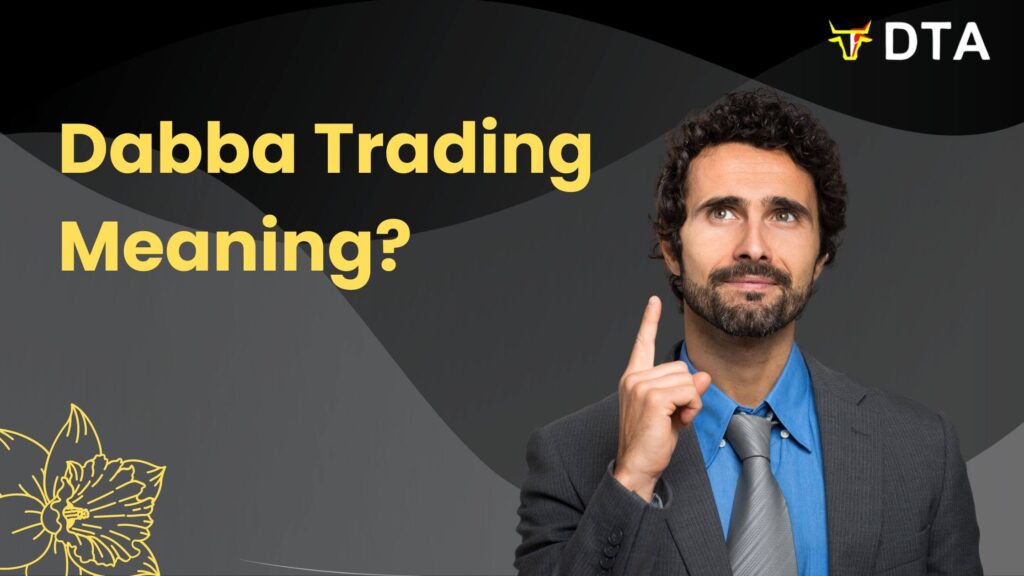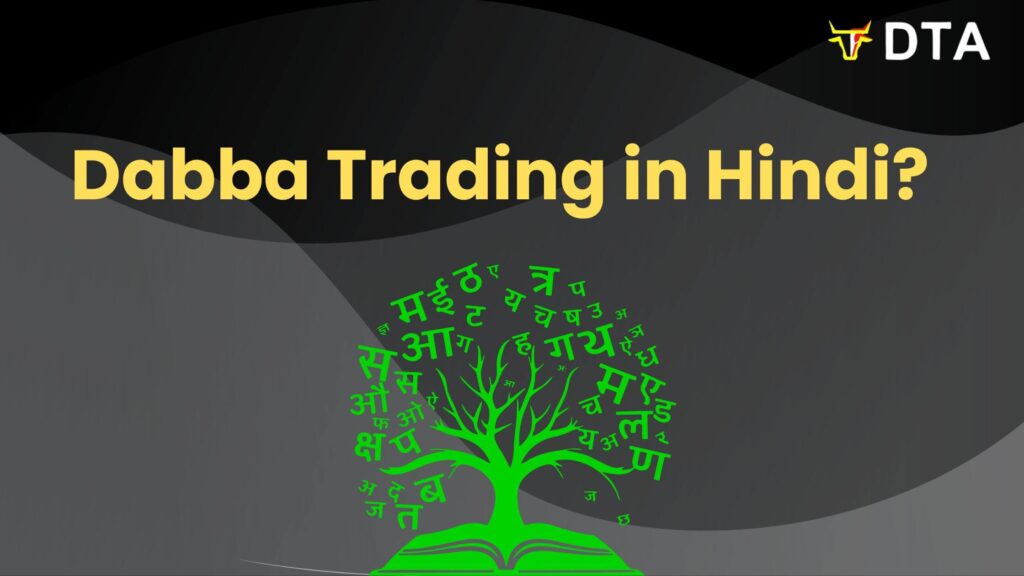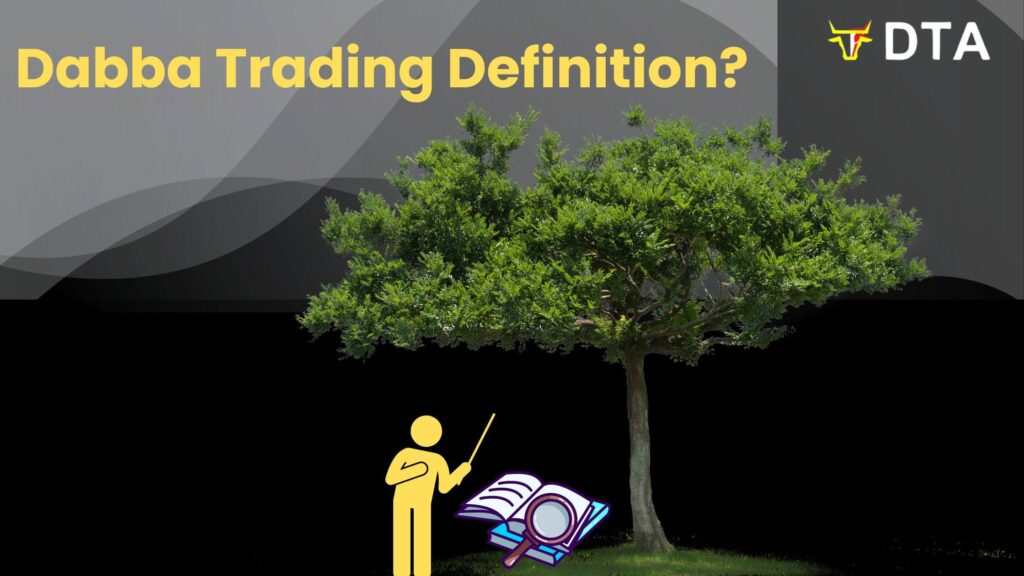Dabba trading is an illegal economic activity where trading is done outside of regulated exchanges like NSE and BSE. Brokers record these trades in private ledgers called “Dabba,” bypassing government oversight. This practice is extremely risky, opaque and provides no legal protection for investors. Engaging in bottle trading can have serious legal consequences, including fines and imprisonment. SEBI and other regulatory agencies are actively working to eliminate this practice to protect market integrity and investor interest.
Dabba Trading Meaning:
Dabba Trading Meaning is an illegal activity where Brokers Trade outside the official stock exchanges like NSE and BSE. Instead of trading on these regulated charts, traders record them in private books, or “Dabba Trading”. This method bypasses legal oversight and is highly risky and prone to fraud.

Key Points:
- Unauthorized trading: Transactions are recorded outside government stores.
- High risk: Lack of legal protection and lack of clarity.
- Illegal: Engaging in bottle trading can carry severe penalties.
- Tax Evasion: Significant loss of tax revenue due to undeclared transactions.
- Regulatory pressure: Authorities like SEBI are working hard to curb this practice.
Investors are advised to avoid can trading and follow regulated trading activities to ensure the safety and integrity of their investments.
Dabba Trading in Hindi:
Dabba trading (dabba trading) refers to illegal trading activities outside government banks. Brokers use individual books, or “dabbas”, to record trades instead of using regulated platforms like the NSE (National Stock Exchange) or BSE (Bombay Stock Exchange).

Key Points:
What it is: Informal trading, through regulated exchanges.
How it works: Business records are kept secret, avoiding regulatory oversight.
Risk: High risk with no legal protection and potential for fraud.
Legal issues: This is illegal and can carry severe penalties such as fines and imprisonment.
Understanding dabba trading in Hindi makes clear the dangers and legal consequences of this illegal practice.
Dabba Trading Kya Hota Hai?
Can trading (can decking) refers to the illegal practice of trading outside government banks. Instead of trading on regulated systems like the NSE (National Stock Exchange) or BSE (Bombay Stock Exchange), brokers record transactions on a personal ledger, or “dabba”.
Here’s what you need to know:
Definition: An unofficial method of trading in which transactions are not conducted on an official exchange.
How it works: Brokers keep track of their records, avoiding regulatory oversight.
Risk: High risk of fraud for which investors are not protected by law.
Legal: The can trade is illegal and can carry serious legal consequences such as fines and imprisonment.
Understanding “what is dabba trading” helps to understand the risks and legal implications of this illegal trade.
Dabba Trading Definition?
Can trading refers to the illegal practice of trading outside government banks. Under this approach, brokers trade and record in an unofficial ledger or “dabba” instead of on a regulated platform like NSE (National Stock Exchange) or BSE (Bombay Stock Exchange).

Definition Highlights:
- Unauthorized trading: Records of trading are recorded in private across the federal regulatory system.
- Records: Tasks are placed in individual libraries rather than on standardized changes.
- Legal Risks: Engaging in the bottle trade is illegal and can attract significant penalties including fines and imprisonment.
- Lack of protection: There are no legal protections for investors involved in the bottle industry, increasing the risk of fraud.
Understanding the definition of can trade is important to determine the risks and legal issues associated with this illegal activity.
FAQ on Dabba Trading
Q: What is Dabba Trading?
A: Illegal trading outside regulated exchanges, recorded in private ledgers called “Dabba.”
Q: Why is it illegal?
A: It bypasses government oversight, posing high risks and potential for fraud.
Q: What are the risks?
A: High risk due to lack of legal protection and transparency; prone to fraud.
Q: How does SEBI combat it?
A: By monitoring activities, conducting raids, and imposing penalties.
Q: What should investors do?
A: Avoid Dabba Trading and trade only through regulated exchanges like NSE and BSE.
